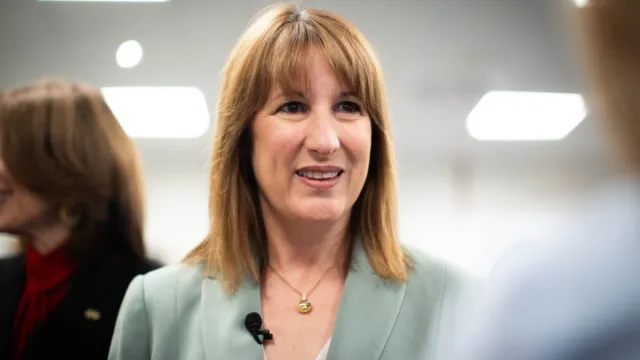Economists say the triple lock is becoming increasingly unaffordable but there is little political appetite for any change
The state pension triple lock is “completely unsustainable” for Britain’s finances – but scrapping it would be too politically toxic for ministers, MPs and economists have warned.
Sir Keir Starmer and Rachel Reeves have committed to keeping the mechanism despite criticism from economists who say that over time it will prove unaffordable.
The policy states that each year the value of the state pension will increase by the same level as inflation, average earnings growth or 2.5 per cent – whichever is the highest.
New FeatureIn ShortQuick Stories. Same trusted journalism.
It guarantees that over the long run, the income of pensioners will grow faster than either the rate of price rises or the salaries of working people, and was introduced to reduce pensioner poverty.
Next year, the state pension is likely to increase by 4.7 per cent, in line with average earnings, it was confirmed on Tuesday. This would take the full new state pension to £241.05 a week.
The news has prompted fresh calls for reform from some quarters. David Gauke, a former treasury minister and work and pensions secretary, told The i Paper: “Maintaining the triple lock is not affordable.” He backed a recent proposal from the Institute for Fiscal Studies that once the state pension has hit a certain percentage of average earnings, the triple lock should be abandoned and that percentage kept stable instead.
Gauke added: “I think that is something Rachel Reeves should announce at her Budget as a measure to reassure the bond markets of the long-term sustainability of public finances. She could then challenge the other parties to back her or be exposed as lacking fiscal credibility.”
 Rachel Reeves will lead another Budget this November
Rachel Reeves will lead another Budget this November
Willem Buiter, an economist and former member of the Bank of England’s monetary policy committee, said: “The UK’s triple lock on state pensions is fiscally irresponsible – and indeed idiotic.” He suggested indexing the state pension to CPIH, a measure of inflation which takes housing costs into account – which would keep its value stable in real terms.
These views are privately shared by a number of MPs – but in a sign of how politically toxic it might be to scrap the popular policy, none of those who spoke to The i Paper on the issue would agree to be named.
One veteran Conservative MP said: “The triple lock has been a very successful policy for raising pensioners out of poverty and it has been possible because the state pension age has been increased meaningfully. The two go hand in hand. But it can’t continue indefinitely as mathematics means that eventually pensioners would be paid more than average incomes.”
Another MP, who serves on the Commons Treasury Committee, added that the triple lock could stay “for a bit longer” but warned it was “completely financially unsustainable in the long run”, saying: “Something has to give in the country’s fiscal position and this could be a good place to look.”
A Liberal Democrat backbencher said: “The UK has a low state pension compared to other major economies, so we do need to ratchet it up. However, the way in which it currently does is extremely volatile and not helpful to fiscal management. We will also, at some point, achieve something that looks like parity with our peers and the justification for continuing to ratchet up at pace will then fade.”
The Government is committed to keeping the triple lock at least until the next general election, and Labour insiders have refused to countenance the idea of scrapping it in future. Pat McFadden, the new Work and Pensions Secretary, said: “This Government is committed to maintaining the triple lock for the course of this parliament… That’s a commitment from the Government to the United Kingdom’s pensioners to maintain the value of the state pension, and that’s something that we said we’d do at the election, and something that we will keep to.”
Steve Webb, who was pensions minister when the triple lock came in to force, commented: “It would be a huge step to scrap the triple lock during the course of this parliament. Not only would this break a clear manifesto commitment, but the triple lock has been repeatedly deployed by the Government as a defence against criticism over changes to winter fuel payments.” He also pointed out that the short-term savings from any change would be limited, with nearly all the money saved falling well outside the five-year window used by the Treasury to set its borrowing rules.
Opposition parties tend to be equally supportive of the policy. Asked whether he is willing to revisit it in future, the Conservatives’ Shadow Chancellor Mel Stride has said that any savings should come from cutting working-age benefits. In an interview with The i Paper this week, Liberal Democrat deputy leader Daisy Cooper said: “We are so incredibly proud of the pensions triple lock as a policy.” Only Reform UK has yet to commit to keeping it, with Nigel Farage saying that the party has not yet had time to consider the issue.
Treasury civil servants have in the past been reluctant to suggest change because they know it would be politically unacceptable, according to a former Conservative adviser who said: “They hated it, but never really pushed back in any serious way. It would have fallen on deaf ears.”
Paul Dales, the chief UK economist at Capital Economics, concluded: “From an economics point of view, you wouldn’t have it as it’s a commitment to raise pensions in line with inflation or by more. In other words, it’s very costly. But it’s the politics that really matter. There’s a trade-off between saving money and alienating some potential voters. That trade-off changes if it becomes more expensive due to higher inflation. But my guess is the politics will remain more important to the Chancellor.”

